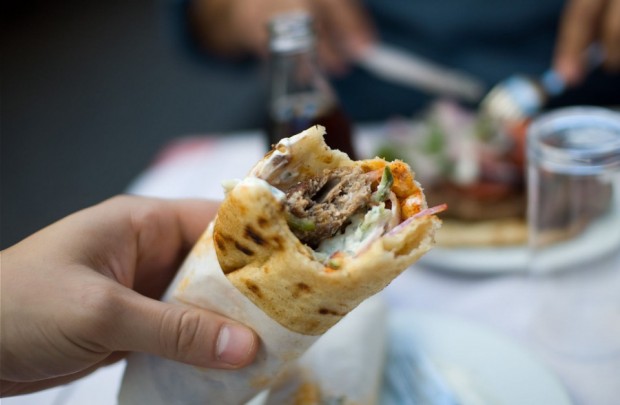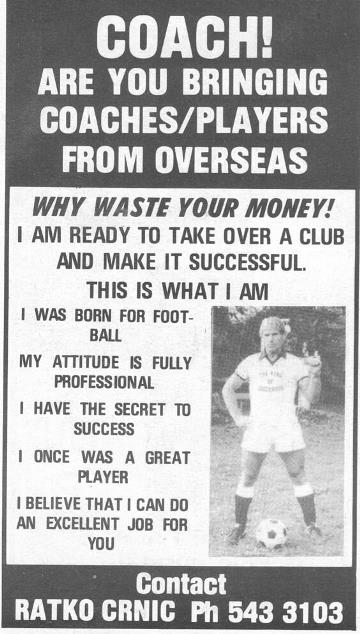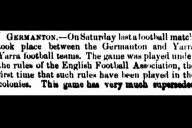A highly confidential Football Federation Australia marketing report obtained by Shoot Farken reveals the sport’s governing body has been actively investigating the possibility of allowing a new “ethnic-flavoured” franchise club into the A-League.
The leaking of the report comes amid heated debate in the football community about the place of ethnic-affiliated clubs in the sport and, especially, in the A-League.
The consultant draft report, titled Futbalo Klubo Por Ĉiuj (an Esperanto language translation of Football Club For All), puts forward a proposal for a new club which would, in the words of the report, seek to “emulate and mimic the exterior appearance of NSL-era ethnic clubs in a postmodern simulacrum akin to a Colours of Benetton style football club”.
“The franchise would aim to appeal to not only ‘old soccer’ ethnics, but also the growing band of retro football fetishists and neo-ironic hipsters,” the report says.
Furthermore, the report explores the idea of basing the club’s identity on an “imagined community of belonging”, citing the examples of the constructed international language of Esperanto, the fictional country of Molvania (created by Australian authors Tom Gleisner, Rob Sitch and Santo Cilauro), and the works of fantasy authors such as George RR Martin and JRR Tolkien as successfully realised examples of such communities.
It also cites English Premier League club Chelsea’s rebirth under Russian oligarch Roman Abramovich as an example of a football club that has made the transition from traditional, geographic-based affiliation to one which now draws on “global, reimagined notions of class and identity”.
“Chelsea’s ‘pensioners’ are now the digital-savvy brand-hoppers of Russia and the Far East: cashed up and ready to buy merchandise,” the report states.
In another departure from tradition, the club would not be based in one city, but would play its “home” games equally in Sydney and Melbourne at first, with the potential for other games to be played in other parts of the country.
“This would allow the club to foster support and create community in a post-spatial localisation that takes place in the neo-formative identity strata of online and digital space, while drawing upon the appeal to ‘grassroots’ and ‘authentic’ notions of footballing identity associated with the near-past of ethnicity tied soccer clubs.”
Though the report does not go into detail about the financial basis or structure of the proposed club, it argues that a boutique approach that emphasises the “ethnic-style sights, sounds and passions” of football could equate to a potential marketing and merchandise bonanza if pitched correctly.
“By creating a whole new ‘ethnic’ identity for this imagined community, we could open up the possibility of spawning the scale and brand loyalty enjoyed by such franchise enterprises as Star Trek, Star Wars and the Harry Potter films: it could quite literally be marketing magic.”
“We could even create our own ethnic food.”
The report goes on to say that creating an imagined ethnic club would also have the effect of derailing the growing calls to negotiate with ‘old soccer’ clubs such as Melbourne Knights, Adelaide City and South Melbourne about being admitted to the A-League via a Division Two competition.
“This would be a club for all the ethnics and those who support them. Indeed, it would be a Futbalo Klubo Por Ĉiuj. There would no longer be the need to enter into debates about football’s history in this country and how it is accommodated in the present and into the future.”
The report raises the idea of the team playing in an all-white strip, similar to Spanish giants Real Madrid, and also mentions highly respected local coach Ratko Crnic as a potential first coach of the team.
Photo of souvlaki by Aris Vrakas taken from Flickr

















